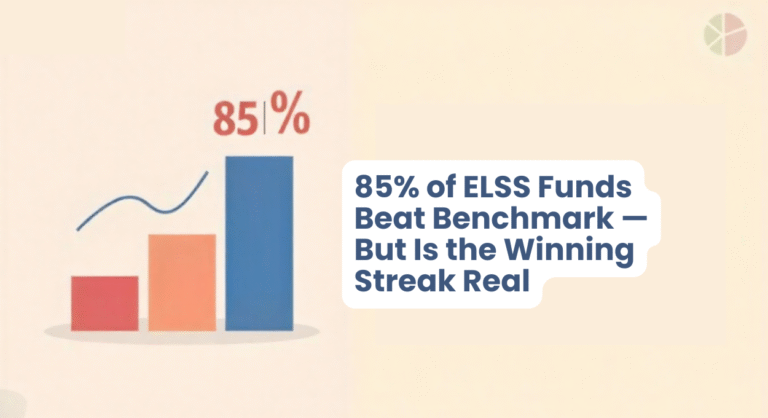Unlock Cash Without Selling Your Gems: Your Guide to Loan Against Securities in India
Ever found yourself in a situation where you needed some quick funds but cringed at the thought of selling off those long-term investments you’ve carefully nurtured? You’re not alone. That’s where a smart financial tool called Loan Against Securities (LAS) steps in, offering a way to tap into the value of your shares, mutual funds, and more, without actually saying goodbye to them.
Think of it as getting a financial boost by simply using your existing investments as a guarantee. Sounds interesting, right? Let’s dive into what LAS is all about and how it can work for you.
What Exactly is This “Loan Against Securities” Thing?
In simple terms, a Loan Against Securities is a secured loan. You basically tell a bank or a lending company, “Hey, I have these valuable investments (like those shares you bought or that mutual fund that’s been doing well). Can I borrow some money using them as collateral?” And if they agree, you get a loan!
The beauty of it is that while your investments are pledged as security, you still own them. You continue to benefit from any potential rise in their value, and you might even still receive dividends or interest they generate. It’s like having your cake and eating a slice of it too!
Also Read :- https://ipofront.in/swp-ideal-strategy-retirement-income/
Why Choose LAS Over Just Selling Your Investments?
Now, you might be wondering, “What are the main benefits of choosing a loan against securities over selling your investments?” Great question! Here’s why LAS often comes out on top:
- Stay Invested, Keep Growing: Your precious investments remain yours. You don’t miss out on potential market growth or those sweet dividend payouts. It’s about getting temporary cash without sacrificing your long-term financial goals.
- Quick Cash in Hand: Compared to the hassle of selling investments, which can take time and involve paperwork, getting a LAS can be surprisingly quick, especially with online options.
- Pocket-Friendly Interest: “How does the interest rate for a loan against securities compare to other types of loans?” Generally, the interest rates on LAS are lower than those on unsecured loans like personal loans or credit cards. This is because your investments act as security, making it less risky for the lender.
- Flexibility is Key: Many lenders offer flexible repayment options. You might be able to pay just the interest for a while, make partial principal payments, or even pay off the entire loan early without penalties.
What Investments Options You Can Use as Your Security?
So, what kind of investments can you actually use to get a LAS? “What types of securities can be used as collateral for a loan against securities?” Here’s a common list:
- Shares of companies listed on the stock exchange (think those blue-chip giants).
- Mutual Funds (whether they invest in stocks, bonds, or a mix).
- Bonds (issued by the government or companies).
- Insurance Policies (especially those with a cash value).
- Exchange-Traded Funds (ETFs) – those baskets of investments we often hear about.
Keep in mind that each lender has its own list of approved securities, so it’s always best to check with them directly.
Also Read :- https://ipofront.in/sip-to-swp-financial-freedom/
How Fast Can You Get the Cash?
When you need money urgently, time is of the essence. “How quickly can you access the funds after applying for a loan against securities?” The good news is that the process can be quite speedy. If you already have a demat account (that digital holding place for your shares and mutual funds) or your securities are held with the lender you’re applying to, you might see the funds in your account within just 24 to 48 hours, especially with online applications.
Are There Any Catches? What are the Risks?
Now, let’s be real – every financial product has its potential downsides. “What are the potential risks associated with borrowing against securities?” Here are a few things to keep in mind:
- The Market Can Be Bumpy: If the value of your pledged investments drops significantly, the lender might ask you to provide more collateral to maintain the loan’s security. This is called a margin call.
- Saying Goodbye if Things Go South: If you can’t meet those margin calls or you fail to repay the loan, the lender has the right to sell your pledged securities to recover their money.
- Not the Full Value: You won’t be able to borrow the entire value of your investments. Lenders typically offer a loan that’s a certain percentage (like 50% to 85%) of the security’s worth.
- Your Investments are on Hold: While you still own them, you usually can’t sell or trade the pledged securities until you’ve fully repaid the loan and they’re unpledged.
Also Read :- https://ipofront.in/understanding-mutual-fund-returns-calculation/
Who is LAS a Good Fit For?
LAS can be a really smart move for:
- Investors who need short-term cash without disrupting their long-term investment plans.
- Business owners who need quick working capital.
- Individuals who have a good investment portfolio but are facing a temporary cash flow crunch.
It might not be the best option if:
- You’re expecting a lot of volatility in the market.
- You don’t fully understand how pledging works.
- You don’t actually have a pressing need for the funds.
Ready to Apply? Here’s a Simple Roadmap:
If you think LAS might be the right tool for you, here’s a general idea of how to apply in India:
- Do Your Homework: Compare different banks and NBFCs (Non-Banking Financial Companies) that offer LAS. Look at their interest rates, the types of securities they accept, and their overall terms.
- Gather Your Documents: You’ll usually need your ID proof (like your PAN card or Aadhaar card), address proof, and proof of the investments you want to pledge (like your demat account statement or mutual fund statement).
- Fill Out the Application: You can usually apply online or by visiting a branch.
- Pledge Your Securities: This is typically done electronically through your demat account.
- Sign the Agreement: Once approved, you’ll need to sign the loan agreement.
- Get Your Funds: The loan amount will then be credited to your account, often as an overdraft facility where you only pay interest on what you use.
Many lenders now have user-friendly online portals and apps to make the whole process smoother.
Also Read :- https://ipofront.in/etfs-vs-index-funds-differences-guide/
Final Thoughts: Unlock Your Investments Wisely
Loan Against Securities offers a powerful way to access funds without having to liquidate your long-term investments. It can be a cost-effective, relatively quick, and flexible solution for various financial needs. Just remember to do your research, understand the potential risks, and only borrow what you truly need. By using LAS strategically, you can navigate your financial needs without compromising your investment goals.
FAQs (Frequently Asked Questions)
- What is a Loan Against Securities, and how does it work? A Loan Against Securities (LAS) allows you to borrow money by pledging your investments—like stocks, mutual funds, or bonds—without selling them. The lender provides funds based on the market value of your securities, and you repay at your convenience.
- What types of securities can be pledged for a Loan Against Securities? Most lenders accept shares, mutual funds, bonds, ETFs, and insurance policies with a surrender value. The eligibility varies based on the lender’s policy.
- How much loan can I get against my securities? The loan amount depends on the value of your pledged securities. Typically, banks and NBFCs offer 50% to 80% of their market worth.
- What are the interest rates for Loan Against Securities in India? Interest rates usually range between 8% to 15%, depending on factors like the type of securities pledged, loan amount, and lender’s terms.
- Can I withdraw or sell my pledged securities while repaying the loan? No, your pledged securities remain locked until you repay the loan. Some lenders may allow partial withdrawals under specific conditions.
Useful Links:-
Know What is Loan Against Securities – All You Need to Know | HDFC Bank
Eligiblity Criteria for Loan Against Securities – Axis Bank
Loan Against Shares: Eligibility Criteria & Required Documents
Loan Against Securities and How to Apply for It?
Loan Against Securities Interest Rates & Charges (Apr 2025) – Axis Bank







